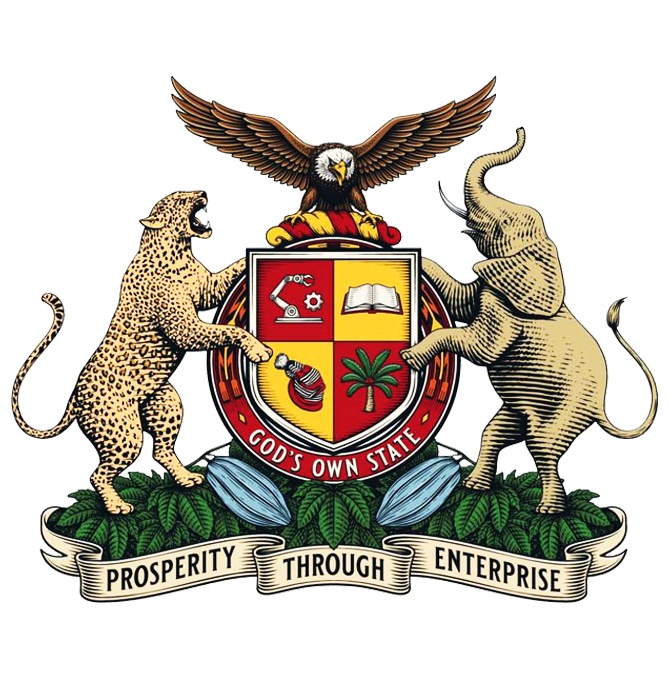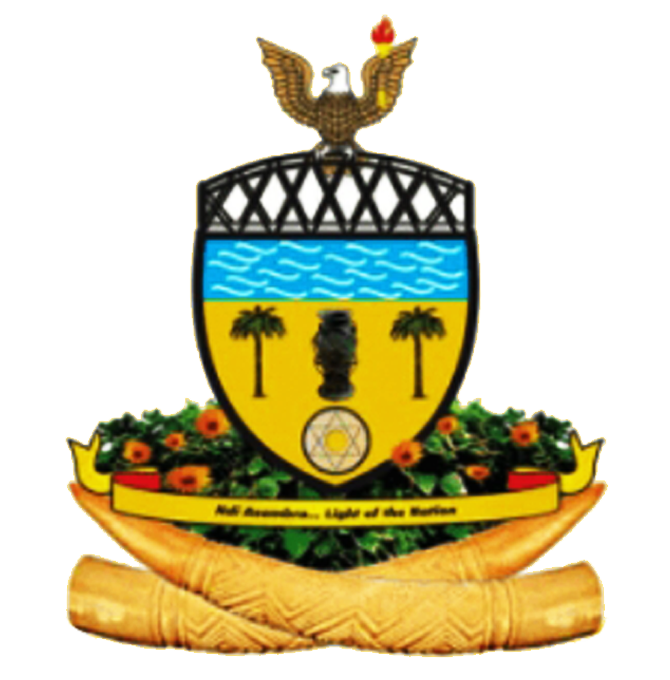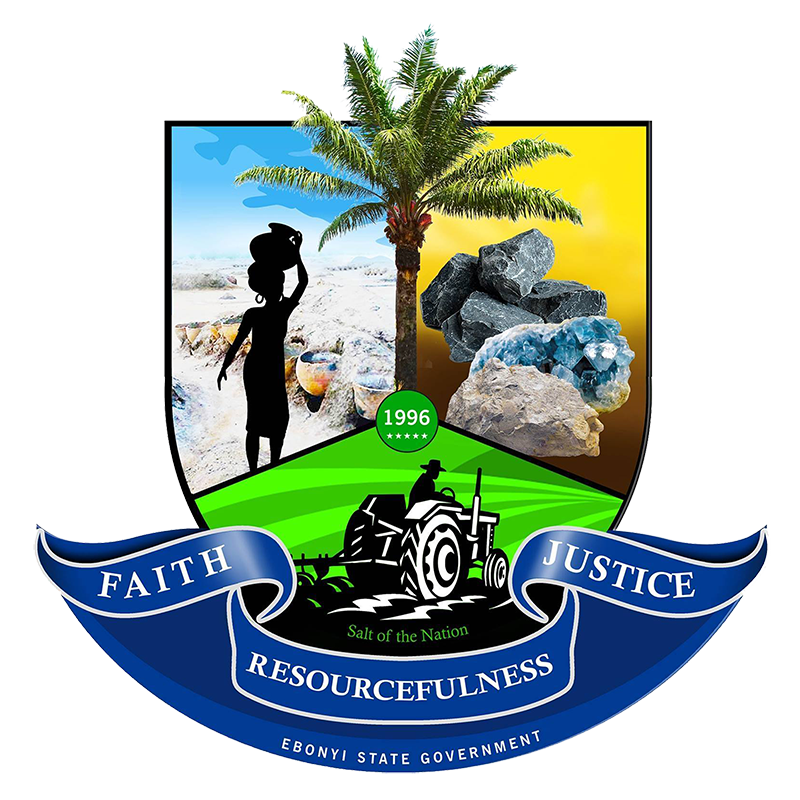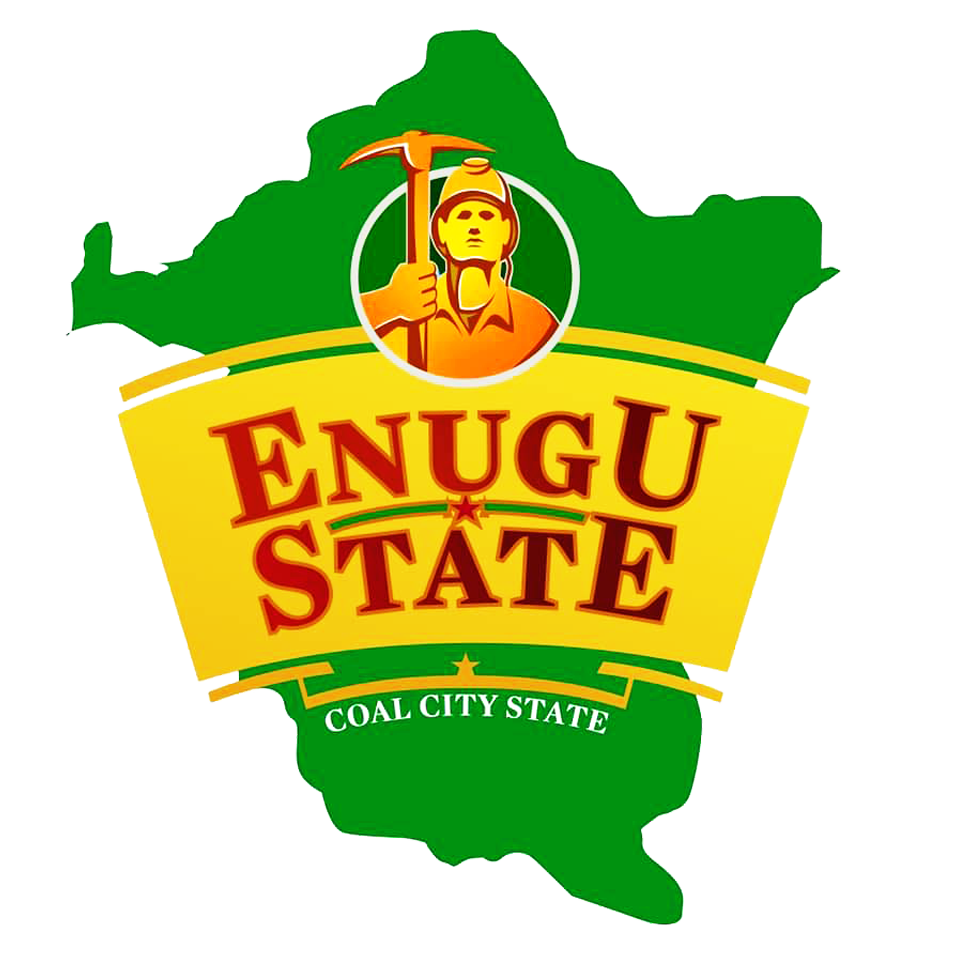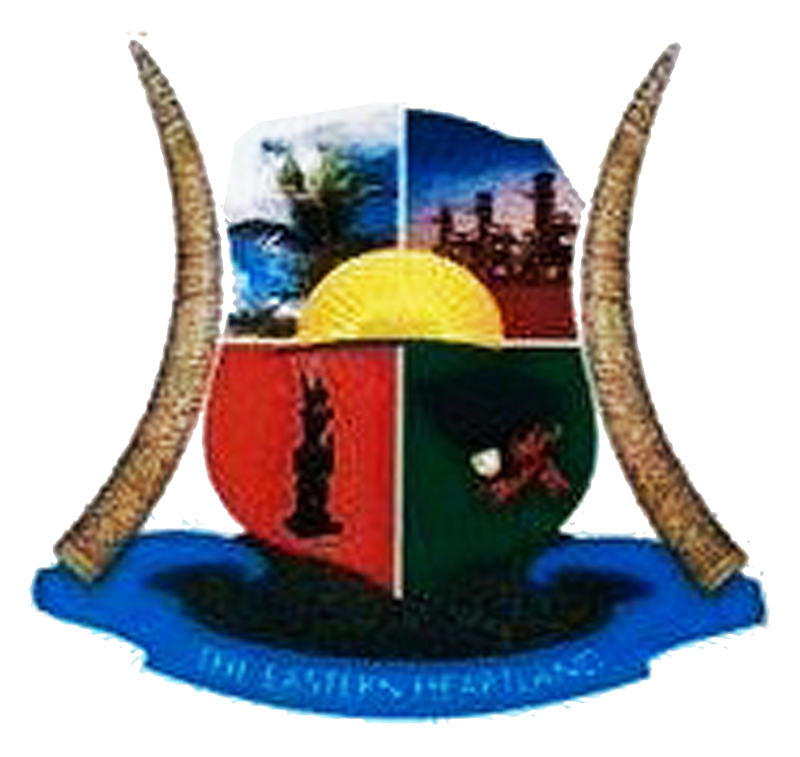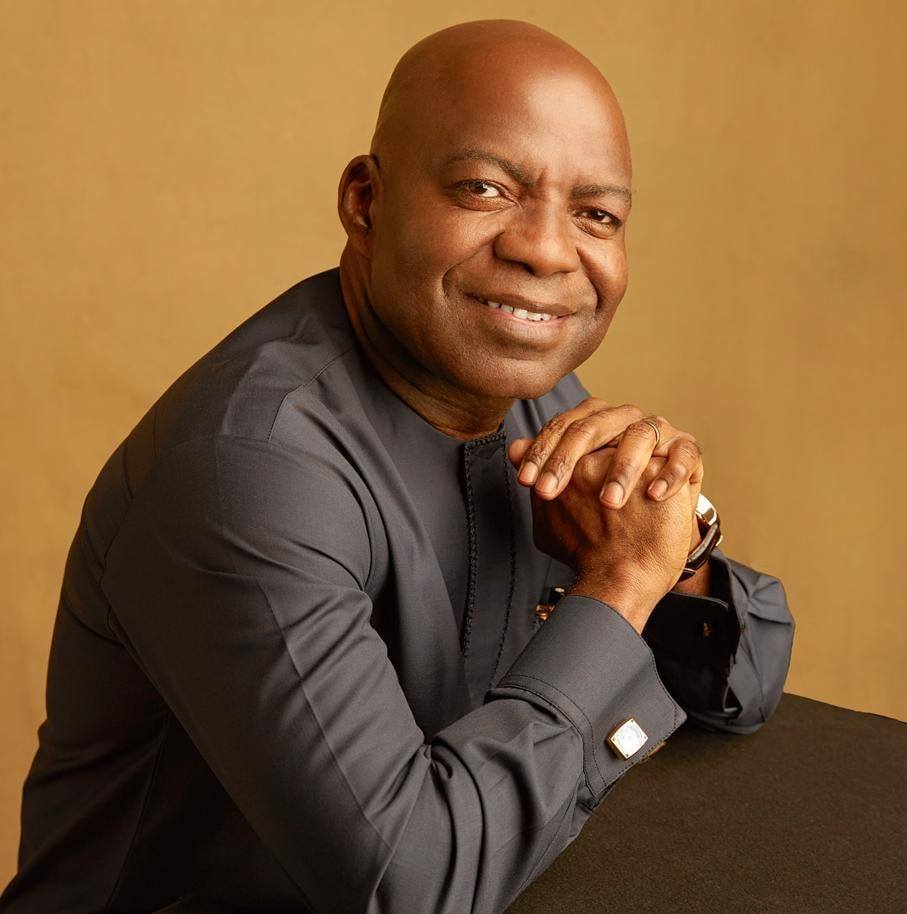
Abia State
God's own state
Abia State (Igbo: Ȯha Abia) is a state in the South-East geopolitical zone of Nigeria, it is bordered to the northwest by Anambra State and northeast by the states of Enugu, and Ebonyi, Imo State to the west, Cross River State to the east, Akwa Ibom State to the southeast, and Rivers State to the south. Abia is the only Southeastern state that has boundaries with the other four Southeastern states in Nigeria. It takes its name from the acronym for four of the state’s most populated regions: Aba, Bende, Isuikwuato, and Afikpo (but Afikpo was later joined with a part of Enugu state to create Ebonyi state in 1996). The state capital is Umuahia while the largest city and commercial centre is Aba.
Abia is the 32nd largest in area and 27th most populous with an estimated population of over 3,727,347 as of 2016. Geographically, the state is divided between the Niger Delta swamp forests in the far south and the drier Cross–Niger transition forests with some savanna in the rest of the State. Other important geographical features are the Imo and Aba Rivers which flow along the Abia’s western and southern borders, respectively.
Modern-day Abia State has been inhabited for years by various ethnic groups, but it is predominantly inhabited by the Igbo people. In the pre-colonial period, what is now Abia State was a part of Arochukwu-based Aro Confederacy before the confederacy was defeated in the early 1900s by British troops in the Anglo-Aro War. After the war, the British incorporated the area into the Southern Nigeria Protectorate which later merged into British Nigeria; after the merger, Abia became a center of anti-colonial resistance with the Women’s War that started in Oloko.
After independence in 1960, the Abia was a part of the post-independence Eastern Region until 1967 before the region was split and it became part of the East Central State. Less than two months afterwards, the former Eastern Region attempted to secede in the three-year long Nigerian Civil War with Abia as a part of the secessionist state of Biafra. At the war’s end and for the reunification of Nigeria, the East Central State was merged as one until 1976 when Imo State (including now-Abia) was formed by the Murtala Muhammed regime. Fifteen years afterwards, Imo State was divided with eastern Imo being broken off to form the old Abia State; but in 1996, part of Abia’s northeast was removed to form a part of the new Ebonyi State.
Economically, Abia State is based around the production of crude oil and natural gas along with agriculture, mainly cultivation of yams, maize, taro, oil palm, and cassava. It has a high concentration of medium-scale manufacturing clusters in the city of Aba. With its fast growing population and industrialization, Abia has the joint-eighth highest Human Development Index in Nigeria.
Know Your Language
Click Here To Delve Into The Igbo Learning Experience
Our Geography
Azumini Blue River in Abia state, Nigeria
Abia State occupies about 4902 square kilometres. It is bounded on the north and northeast by the states of Enugu for about 25 km, and Ebonyi for 70 km (43 miles), Cross River State for about 52 km (partly across Cross River) and Akwa Ibom State for 151 km (94 miles) to the east and southeast respectively, Rivers State to the south and west for 87 km (54 miles), Imo State and Anambra to the west for to the west in the vicinity of the Imo River) for about 18 km and about 104 km respectively. The southernmost part of the State lies within the Niger Delta Swamp Forests, while the rest of the state, lies within the Cross–Niger transition forests. The southern portion gets heavy rainfall of about 2,400 millimetres (94 in) per year and it is intense between the months of April through October. The most important rivers in Abia State are the Imo and Aba Rivers which flow into the Atlantic Ocean through Akwa Ibom State
Abia State is one of the thirty-six States in Nigeria, and has about seventeen Local Government Areas, out of the 774 Local Government Areas that make up the Federal Republic of Nigeria. Abia State was created on the 27th of August 1991, during the government of General Ibrahim Babangida. The State is located in the south-eastern part of Nigeria. Abia state was created out of Imo State, and the two sister states share boundaries. Abia State is known as one of the constituent states of the Niger Delta region. The state has its capital at Umuahia while the commercial city of the state is Aba. Abia State is also referred to as God’s own state. The name “Abia” is an abbreviation of four of Abia state’s densely populated regions Aba, Bende, Isuikwuato, and Afikpo.
The Igbo people, who are one of the indigenous peoples of the South-eastern part of Nigeria, make up 95% of the population. Their traditional language, Igbo, is in widespread use. Ibibio is spoken as a minority language, especially in Arochukwu English is also widely spoken and serves as the official language in governance and business. In Abia State over 3 million people are mainly Christians. According to there are 689,668 Catholics (2020) in the Umuahia Diocese (1958) with 70 parishes under Bishop Michael Kalu Ukpong (2022) and Aba Diocese (1990) with 90 parishes under Bishop Augustine Ndubueze Echema (2019), both suffragans of Archdiocese of Owerri
Toggle Content
Abia State is made up of seventeen (17) Local Government Areas. They are:
- Aba North
- Aba South
- Arochukwu
- Bende
- Ikwuano
- Isiala Ngwa North
- Isiala Ngwa South
- Isuikwuato
- Obi Ngwa
- Ohafia
- Osisioma Ngwa
- Ugwunagbo
- Ukwa East
- Ukwa West
- Umuahia North
- Umuahia South
- Umu Nneochi
Eze OHA 4th of Aba Ngwa Raymond D Ogbonna Aba South Eziukwu Aba Autonomous Community
Ochiudo 1 Aba Ukwu Ngwa Jonathan U. oguejiofor (JP): Justice of Peace of Federal Republic of Nigeria, Abia State
Oru 1 of Oru Onyerubi Igbo / Oboro Eze Ralph Ukachi Ogbonna 1 Ikwuano Oru Oboro Autonomous Community
Osimiri III Aba Ngwa Eze (Barrister) Sunday Emejiaka 1 Aba South Aba
Eze Aro Igbo / Arochukwu Mazi Ogbonnaya Vincent Okoro (Eze Aro III) 1 Arochukwu Oro Arochukwu
Ugwumba 1 Ndida Ozaar Asa / Asa Eze Samuel Chukwuemeka Agu Ukwa West Umuebulungwu, Ndida Ozaar Autonomous Community
Ike 1 Ikeisu Igbo / Isu Augustine O. Igwe (Ike I) ? Arochukwu Ikeisu (Utugiyi)
Ezeala III Ngwa Ngwa Eze Edward Enwereji ? Osisioma Ngwa
Ugo Oha (Eze) Etiti Mgboko Umuanunu Ngwa Ngozi Ibekwe 1 Obi ngwa
Eze Ukwu 1 Ngwa-Ukwu Ngwa Benard Enweremadu 1 Isiala Ngwa Ngwa Ukwu Kingdom. The ancestral home of Ngwa Land.
Nya 1 Nunya Igbo / Oguduasaa M.E. Ihevume ? Isuikwuato Nunya Autonomous Community
Ossah-Ibeku (Eze) Umuahia[50] Igbo / Osaa Nze Hope Onuigbo X X Umuahia Amibo, Nsukwe
Eze Uturu Igbo / Uturu A.E. Ude ? Isuikwuato Uturu
Igbojiakuru (Eze) Alayi Igbo / Alayi Ukeje Philip ? Bende Ndi Elendu, Amaeke Alayi
Awu (Eze) Isuamawu Igbo / Isuikwuato Surveyor Chris E Aboh, FNIS 1 Isuikwuato Eluama Isuama
Enachioken Abiriba Igbo / Abiriba Kalu Kalu Ogbu 1 Ohafia Abiriba
Ohanyere I Ohiya Igbo / Umuahia Eze Abel E. Uhuegbu ? Umuahia South Umueze, Ohiya
Eze Ohanyere I Ahiaba Ubi Ngwa Eze D.O. Ogbuisi ? Isiala Ngwa North Abia
EZE TOWE 1 Umutowe. Igbo / Eze G. C Onwuka ? Umuahia South Abia
Okaa Omee I Amaikwu, Abia Igbo / Uche Nwamarah ? Umuahia South Abia
Ezeudo II Amaitolu Ovungwu Auto. Comm. Ngwa Eze Prof. Emeka Joseph Otagburuagu ? Isiala Ngwa South Abia
“Ehi II” Ehi na Uguru Auto. Comm, Umuguru Ngwa Eze E. E. Eluwa 1 Isiala Ngwa South
“Ochi 1” Ochi na Isuochi. Comm, Umunneochi Igbo / Umu Nneochi HRM EZEKWESIRI 1 Umu Nneochi Abia
The State Government is led by a democratically elected Governor who works closely with members of the state’s House of Assembly. The capital city of the state is Umuahia. and there are 17 local government areas in the state.
Abia State House of Assembly, Nigeria
At statehood in 1991, Abia was ruled by Ibrahim Babangida-appointed Military Administrator Frank Ajobena before Ogbonnaya Onu was elected governor later that year under the Third Nigerian Republic. Onu governed for nearly two years before Sani Abacha ended the Third Republic and reinstated full military rule. Under the Abacha regime, three more Military Administrators (Chinyere Ike Nwosu, Temi Ejoor, and Moses Fasanya) were appointed before Abacha’s death and the accession of Abdulsalami Abubakar. Abubakar appointed one more Military Administrator, Anthony Obi, before starting the transition to democracy in 1998.
In 1999, Nigeria returned to democracy, and Orji Uzor Kalu was elected governor on the platform of the People’s Democratic Party. Consequently, he was sworn in on 29 May 1999. In 2003, when it was time for fresh elections, Kalu re-contested on the platform of the PDP and got a second mandate to govern (the Constitution of Nigeria limits Governors to two terms in office). At the end of Kalu’s term in 2007, Theodore Orji (PPA) defeated Onyema Ugochukwu (PDP) in the 2007 gubernatorial election, to become Abia’s next Governor. In 2011, Theodore Orji defected from the PPA to the PDP before being re-elected for another four-year term later that year.
In 2015, Okezie Ikpeazu (PDP) was voted in as the ninth Governor of Abia State. Four years later, he won re-election, defeating Uche Ogah of the All Progressives Congress and Alex Otti of APGA to be sworn in as Governor for a second term on 29 May 2019. In Abia State, 70 percent of politicians belong to the PDP.[citation needed]
In 2023, Alex Otti of the Labour Party Nigeria (LP) emerged as the eleventh governor of the state having defeated the candidate of the PDP in a fiercely contested race.
Electoral system
The electoral system of each state is selected using a modified two-round system. To be elected in the first round, a candidate must receive the plurality of the vote and over 25% of the vote in at least two -third of the State local government Areas. If no candidate passes threshold, a second round will be held between the top candidate and the next candidate to have received a plurality of votes in the highest number of local government Areas
- Arochukwu, which is associated with slave trade.
- Azumini Blue River waterside
- The Amakama wooden cave; a hollow tree that can accommodate up to twenty people.
- Caves located in the north, ranging from Umunneochi to Arochukwu.
- Traditional festivals and dances
- National War Museum, Umuahia and Ojukwu Bunker in Umuahia
- Museum of Colonial History in Aba
- Akwete” cloth weaving at Ukwa-East LGA
- Ohafia War Dancers
- Amafor-Isingwu biannual Iza aha ceremony
- Ekpe Festival in Umuahia
Crude oil and gas production is a prominent activity, as it contributes over 39% of the State’s GDP. However, the indigenous oil companies – through the Marginal Fields Programme (MFP) – have not found it easy to attract the requisite funding and infrastructural capacity, to explore some of the marginal oil fields which are about 50 in the State.
The manufacturing sector only accounts for 2% of the GDP. The industrial centre of the state is in Aba, with textile manufacturing, pharmaceuticals, soap, plastics, cement, footwear, and cosmetics. In addition to the above, Abia State Government has just built a 9,000 capacity multipurpose International Conference Centre in Umuahia. This edifice of international standard was built by Governor T.A Orji, to enhance tourism as well as boost the state economy, through hosting of major International and Local events.
Representing 27% of the GDP, agriculture – which employs 70% of the state workforce – is the second economic sector of Abia. With its adequate seasonal rainfall, Abia has much arable land that produces yams, maize, potatoes, rice, cashews, plantains, taro, and cassava. Oil palm is the most important cash crop.
The residents of Abia state are predominantly Christians.
Churches
Umuahia Catholic Diocese (1958) with 70 parishes is under Bishop Michael Kalu Ukpong (2022) and Aba Diocese (1990) with 90 parishes under Bishop Augustine Ndubueze Echema (2019) , both suffragans of Owerri Archdiocese.
The Aba Province of Anglican Church of Nigeria led by Archbishop Isaac Nwaobia (2019) comprises the nine Dioceses of Aba led by Bishop Christian Ugwuzor (2011), Aba Ngwa North (2007) led by Bishop Nathan Kanu (2009), Arochukwu/Ohafia led by Bishop Johnson Onuoha, Ikwanuo led by Bishop Chigozirim Onyegbule, Isiala Ngwa led by Bishop Temple Nwaogu, Isial-Ngwa South (2007) led by Bishop Isaac Nwaobia, Isikwuato (2005) led by Bishop Manasses Chijiokem Okere (2013), Ukwa (1994) led by Bishop Samuel Kelechi Eze (2004), and Umuahia led by Bishop Geoffrey Obijuru Ibeabuchi (2019).
Languages
Below is a list of Languages of Abia State organised by the LGA:
LGALanguages
Arochukwu Igbo, Ibibio
Umuahia South Igbo
Umuahia North Igbo
Ikwuano Igbo
Isuikwuato Igbo
Ukwa West Igbo
Aba South Igbo
Aba North Igbo
Isiala Ngwa North Igbo
Isiala Ngwa South Igbo
Obingwa Igbo
Umunneochi Igbo
Ugwunagbo Igbo
Ukwa East Igbo
Aba experiences a warm and gloomy wet season as well as a scorching and oppressive dry season. The temperature rarely drops below 61 °F (16 °C) or rises over 91 °F (33 °C) throughout the entire year, fluctuating between 68 and 88 °F (20 and 31 °C).
The beach/pool score indicates that the best time of year to visit Aba for hot-weather activities is from late November to early February.
In Aba, the rainy season is warm and cloudy, the dry season is hot and largely gloomy, and the climate is uncomfortable all year. The average annual temperature ranges from 68 °F to 88 °F, with occasional exceptions when it falls below 61 °F or rises over 91 °F.
Since Aba experiences so small seasonal temperature variations, talking about the hot and cold seasons isn’t very helpful.
There are over 100 oil wells and 3 installed flow stations in Abia State. There is also an associated gas plant, Abia/NNPC gas plant. As of 2012, boundary Commission said it returned 42 oil wells from neighbouring Rivers State to Abia. This would have meant Abia was r fourth largest oil-producing state in the country. Oil giant, Shell, holds most of the licenses for the wells in the State, and has concentrated on the estimated 50 wells that are considered high-yield.
The state produced 36,000 barrels of crude oil per day; “Imoturu produces 23,000 barrels per day and Isimili flow station produces over 8,000 barrels of crude oil per day. Then four oil wells in Izaku go to Obigo flow station. About 30 oil wells from my village go to Umuri, and about eight oil wells from Umurie go to Afam”, said Samuel Okezie Nwogu, Chairman of Abia State Oil Producing Development Area Commission (ASOPADEC). However, the State has complained of poor funding from its oil revenue federal allocation.
Raw Materials in Abia State
Aside oil and gas deposits, the following solid minerals are also found across Abia State:
- Gold
- Lead/Zinc
- Limestone
- Salt
- Kaolin
- Limestone
Abịa State University
There are six universities in the state: the federal-owned Michael Okpara University of Agriculture[ at Umudike, the state-owned Abia State University in Uturu, the privately-owned Gregory University in Uturu, Rhema University in Aba, Spiritan University in Umu Nneochi, Clifford University in Owerrinta, and Nigerian British University in Asa,. Other higher institutions of learning includes: Uma Ukpai Polytechnic, Asaga-Ohafia, Abia State College of Education (Technical) in Arochukwu, Abia State College Of Health Sciences and Management Technology in Aba, Temple Gate Polytechnic in Aba, Abia State Polytechnic and the National Institute for Nigerian Languages, Aba, a federally-owned inter-university centre for the study and development of Nigerian Languages.
The nearest airport to Abia is Sam Mbakwe Cargo Airport (Owerri Airport), it is an hour drive to Umuahia and Aba. It is two hours’ drive to Port Harcourt International Airport. Akwa Ibom Airport (Akwa Ibom State) can also serve would-be visitors. The distance between Uyo (Akwa Ibom) and Umuahia (Abia) is: 73.28 kilometres (45.53 mi).
The rail transport is also available in the state very effective. Aba is connected to Port Harcourt by rail. Umuahia is connected to Aba and Enugu by rail. The coastal parts of the State are equally accessible using boats and canoes.
Federal Highways are;
- A3 northeast from Port Harcourt (Rivers State) via Umuahia, Umuokwara (Imo State) and across the north of Abia State again via Lokpauku to Enugu State,
- F103 east from Akwa Ibom via Ikot Ubo to Oron,
- F104 from Aba via Azumini, Etinam, and Ndiya to F103 at Ikot Ubo,
- F107 from Umuahia via Bende to F234 in Ohafia,
- F108 from Arochukwu, in the southeast, via Ikot Okpora and Orira to A4,
- F112 the Okigwe-Afikpo road east from Imo State via Okigwe to Ebonyi State.
Other major roads includes;
- Southeast from Okigwe to Amiyi-Uhu (Ogboro Junction) to Amaba
- The Ahaba-Umunekwu east and south from Amaba as the Ohafia-Ogo Ubi-Agu Eze Rd to join the Umuahia-Ohafia Rd,
- The Umuahia Rd south to Akwa Ibom,
- The Obohia-Azumini Rd east to Akwa Ibom,
- North from A3 at Uzuaku to Owaza (Rivers State),
- The Asa-Akwere-Obohia Rd west from A3 at Obehie Junction to Owaza
- The Eberi-Umu Uyo Rd southwest from A6 at Umuvo to Rivers State.
- Abai Ikwechegh – Jurist
- Acho Nwakanma – Former Deputy Governor of Abia State
- Adaobi Tricia Nwaubani – novelist and essayist
- Adolphus Wabara – Former Senate President of Nigeria.
- Akwaeke Emezi – novelist
- Alex Mascot Ikwechegh, politician, businessman and philanthropist
- Alexx Ekubo, Nollywood actor and Top Model
- Alex Otti – Banking Expert and Present Governor of Abia State.
- Alvan Ikoku, OBE educationist (1900–1971)
- Anya Oko Anya, technocrat and academic
- Ashley Nwosu – Former Nigerian Actor
- Arunma Oteh – Former World Bank Vice President and Treasurer.
- Azubuike Ihejirika – Lt. General and former Chief of Army Staff
- Azubuko Udah – Former Deputy-Inspector General of the Nigerian Police Force
- Basketmouth – comedian
- Benjamin Kalu – politician and member of the House of Representatives
- Blessing Nwagba – Female Politician
- Bright Chimezie – Highlife Musician
- Buchi Atuonwu – Gospel Artiste
- Chelsea Eze – award-winning Nollywood actress
- Chidi Imoh – Athlete
- Chijioke Nwakodo – Politician
- Chika Chukwumerije – Olympic Taekwondo Medalist (Beijing 2008); 3-time Olympian; first Black African Olympic Medalist in the Martial Arts.
- Chika Okeke-Agulu – Art historian.
- Chinedu Ikedieze – award-winning Nollywood actor,
- Chinedum Enyinnaya Orji – Speaker of the Abia State House of Assembly
- Chinweizu Ibekwe – Renowned essayist, poet, and journalist.
- Chinyere Almona – business executive
- Chinyere Kalu – Nigeria’s first female pilot.
- Chioma Agomo – Professor of Law
- Chioma Onyekwere – Nigeria’s Discus Champion.
- Chioma Toplis – Nollywood Actress.
- Chisom Chikatara – Professional Footballer
- Christy Ucheibe – Female Nigerian Professional Footballer
- Chuku Wachuku – Statesman and former Director-General of Nigeria’s NDE: National Directorate of Employment
- Christopher Kanu – Former Nigerian Professional Footballer.
- Christopher Osondu – Former Navy Captain and Military Administrator of Cross River State
- Chukwuemeka Ngozichineke Wogu – Former Minister of Labour and Productivity
- Clifford Ohiagu – Politician
- Daniel Kanu – Nigerian-American Politician.
- Dike Chukwumerije – Award-winning Novelist, Poet, Public Speaker and Spoken-word artiste. Listed on 100 most influential Africans.
- Ebitu Ukiwe – former Military Vice President; Former Governor of Niger and Lagos States.
- Ejike Asiegbu- Nollywood Veteran actor
- Ejikeme Ikwunze – Sports Journalist
- Emma Ugolee – Media Personality and Author
- Emmanuel Acho – Former American Football Player; Analyst at Fox Sports 1
- Emeka Ananaba – Former Deputy Governor of Abia State
- Eni Njoku – pioneer Vice Chancellor, University of Lagos and first black Vice Chancellor, University of Nigeria Nsukka.
- Enyinnaya Abaribe – Senator and former Deputy Governor
- Eucharia Oluchi Nwaichi – Environmental biochemist, Soil Scientist, and Toxicologist
- Ezinne Kalu, Female Basketballer
- Felix Nmecha – Professional Football Player
- Fortunatus Nwachukwu – Catholic Prelate
- Francis Ezeh – Professional Football Player
- Godswill Obioma – Former National Examination Council Registrar
- Ifu Ennada – Actress, Fashion Designer, and Former Big Brother Naija Housemate.
- Iheanacho Obioma – Politician
- IK Ogbonna, Nollywood Actor and Top Model
- Ike Ibeabuchi, Professional Boxer.
- Ike Nwachukwu, a military officer, former state governor, diplomat, former senator, and former chairman of the governing board of the Nigerian Institute of International Affairs.
- Ikechi Uko- Renowned travel consultant
- Ikechukwu Uche – Former Nigerian Professional Footballer
- Ikeogu Oke – Author, Journalist, and Award-winning Poet
- Isaac Nwaobia – Anglican Bishop
- Ivy Uche Okoronkwo – First Female Deputy Inspector General of Police
- J. Martins, Afro-pop artiste
- Jaja Wachuku – First Minister of Foreign Affairs in Nigeria, First indigenous Speaker of the House of Representatives of Nigeria and first Nigerian Permanent representative to the UN.
- Joe Irukwu – Nigeria’s First Professor of Insurance.
- Joel Kachi Benson, documentary film maker.
- John Godson – Polish lawmaker and philanthropist.
- Johnson Aguiyi-Ironsi – Nigeria’s Military Officer and former Head of State.
- Josaiah Ndubuisi Wachuku – Former Eze of Ngwa land.
- Joyce Kalu – Nollywood Actress
- Kalu Uche – Former Nigerian Professional Footballer
- Kalu Idika Kalu – former Finance Minister and politician
- Kalu Ikeagwu – Movie Actor and Writer.
- Kalu Ndukwe Kalu – Political scientist and Distinguished Research Professor of Political Science and National Security Policy at Auburn University
- Kelechi Emeteole – Former Nigerian Professional Footballer
- Kenneth Omeruo – Nigerian Professional Footballer
- Linda Ejiofor – Nollywood Actress
- Lukas Nmecha – Professional Football Player
- Mao Ohuabunwa, industrialist and politician
- Mary Lazarus – Nollywood Actress
- Miraboi – Businessman
- Michael Okpara – premier of Nigeria’s Eastern Region from 1959 to 1966.
- Mike Ezuruonye – Award-winning Nollywood actor.
- Mr Raw – Igbo rap music pioneer
- Nathan Kanu – Anglican Bishop
- Ndubuisi Kanu – Former Governor of Lagos State and old Imo State.
- Nkechi Blessing Sunday – Nollywood actress
- Nkechi Justina Nwaogu – Two Time Senator Abia Central Senatorial District and Immediate Past Pro Chancellor University of Calabar.
- Nkiru Sylvanus – Awarding winning Nollywood actress
- Nnamdi Kanu – founder of the Indigenous People of Biafra (IPOB), a separatist group.
- Nnamdi Udoh – Aeronautical Engineer
- Ndubuisi Ekekwe – Notable Inventor
- Nnenna Elendu Ukeje – Female Politician
- Nwabueze Nwokolo – British Lawyer
- Nwankwo Kanu – Two-time African Footballer of the year and Arsenal FC legend.
- OC Ukeje – Lagos-based Multiple Award Winning Nollywood actor.
- Ogbugo Kalu – Renowned Army Officer.
- Oji Umozurike, professor of law
- Ojo Maduekwe – Former Nigerian Politician.
- Okechukwu Enelamah – former Minister for Trade and Investment (2015–2019)
- Okezie Ikpeazu – Former Abia State Governor
- Olu Oguibe – Professor of art at the University of Connecticut and senior fellow at the Smithsonian Institution in Washington, DC
- Oluchi Onweagba – International model and first winner of M-Net Face of Africa
- Onwuka Kalu – Business Mogul and co-founder of Fidelity Union Merchant Bank
- Onyema Ogbuagu – Medical Researcher
- Onyema Ugochukwu – First Executive Chairman of the Niger Delta Development Commission (NDDC)
- Orji Uzor Kalu – chairman, SLOK Group; Former State Governor and one time Founder of Progressive People’s Alliance (PPA); Senator of the Federal Republic of Nigeria.
- Pascal Atuma – Canadian-Nigerian actor, screenwriter, film producer, director and CEO/Chairman TABIC Record Label. born in Ikwuano Umuahia, Abia State, Nigeria.
- Pascal Ojigwe – Nigerian former professional footballer and Abia State Commissioner of Sports.
- Paul Agbai Ogwuma – former Governor of Nigeria’s Central Bank
- Ruggedman, Afro-Rap artiste.
- 2Shotz, AfroRap Artiste
- Sam Acho – ESPN Sports Analyst and Veteran American Football Player.
- Sam Ohuabunwa – Founder of Neimeth Pharmaceutical and Former President of the Pharmaceutical Society of Nigeria[citation needed]
- Samuel Achilefu – Notable Inventor
- Samuel Chukwueze – Nigeria National Team football player
- Samuel Kalu – Nigerian Professional Footballer.
- Sunday Mba – Nigerian Professional Footballer
- Theodore Orji – former State Governor and a serving Senator of the Federal Republic of Nigeria.
- Uche Jombo, award-winning Nollywood actress.
- Uche Chukwumerije – 3-time Senator of Fed Rep of Nigeria; Former Nigerian Minister of Information and Culture; Former Biafran Minister of Information; Publisher Afriscope Magazine.
- Uche Elendu – Nollywood actress
- Uche Okechukwu – former Nigerian Team footballer
- Uchechukwu Sampson Ogah – Businessman and Politician
- Uchenna Ikonne – Academic and Public Administrator
- Uchenna Kanu – Female Nigerian Professional Footballer
- Ude Oko Chukwu – Deputy Governor of Abia State
- Uma Ukpai – Evangelist.
- Uzo Asonye – Partner at Davis Polk & Wardwell
- Uzodinma Iweala – US-based medical doctor and author of the book Beasts of No Nation.
- Uzoma Emenike- Nigeria’s Ambassador to the United States of America.
- Victoria Inyama – Nollywood Actress.
- Vincent Eze Ogbulafor – Former National Chairman of the People’s Democratic Party
- Waconzy – Musician
- Yagazie Emezi – Award-winning photojournalist
- Yvonne Okoro – Ghanaian-Nigerian actress
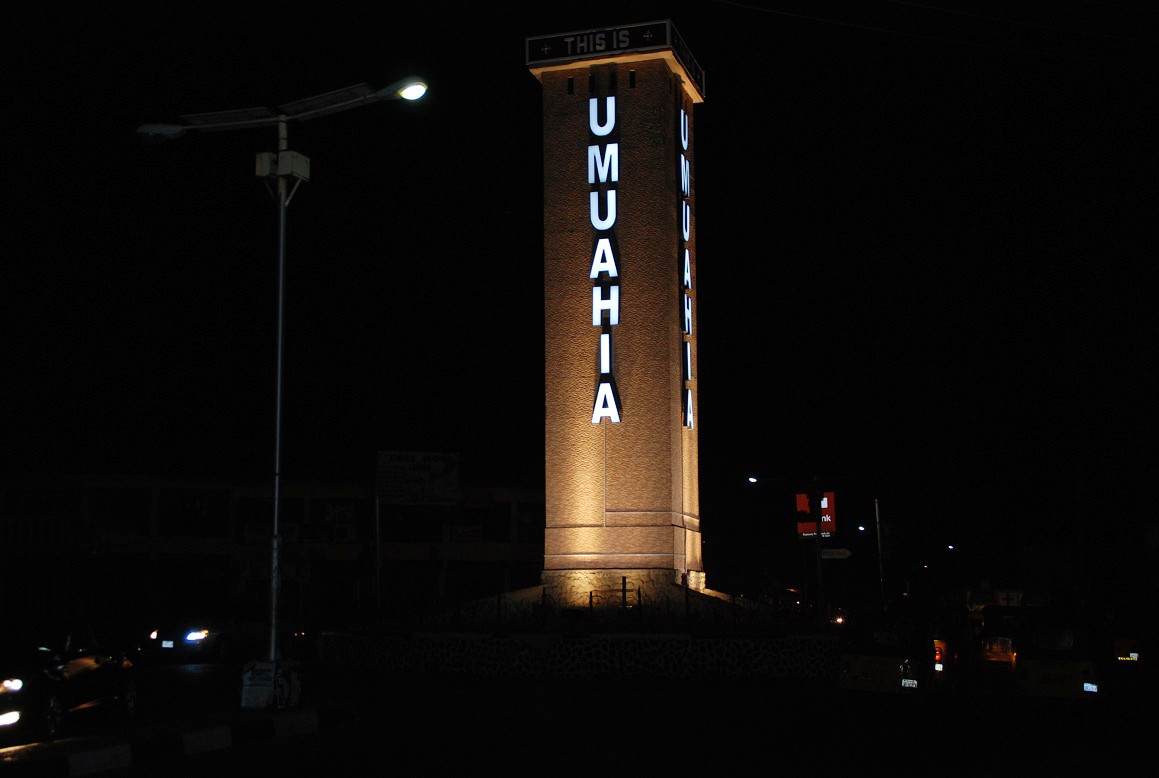
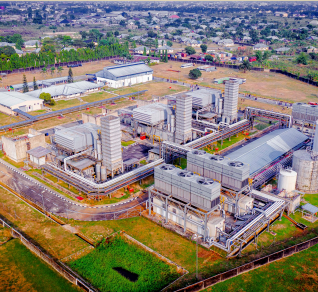
Welcome To Orient Igbo CommunityIgbo Entrepreneurs Igbo Professionals Resourceful Minds
Welcome to our social re-engineering and nationalist platform, dedicated to networking innovative Igbo entrepreneurs, professionals, and politically conscious men and women. Our goal is to build a powerful and influential political and business empire, with significant investments in strategic sectors of the Nigerian economy and polity. Through this initiative, we aim to develop the Igbo community to competes effectively with other tribes and ethnic groups without resorting to violence or any other socially unacceptable methods.
OUR MISSION
To harness the potential of young professionals and entrepreneurs from the southeastern states in fostering unity and development within the society. And to build the Igbo nation into a world tourism hub through the conscious revival and promotion of the rich cultural heritage of the Igbo people of South eastern Nigeria.
OUR VISION
To be a catalyst of development and economic prosperity across the southeastern states, to foster national unity while working as the most powerful platform for the socio-political emancipation and empowerment of Igbos anywhere in the World by building a powerful network of innovative Igbo professionals and entrepreneurs for the overall interest of the Igbo ethnic nation.
WHY US
O-Originality
R -Resourceful
I -integrity
E-Excellence
N-Networking
T- Team Work
The Southeastern State; We are the MerchantCreativeIndustrious Tribe of the Nation
The South East (often written as South-East) is one of the six geopolitical zones of Nigeria representing both a geographic and political region of the country’s inland southeast. It comprises five states – Abia, Anambra, Ebonyi, Enugu, and Imo.

